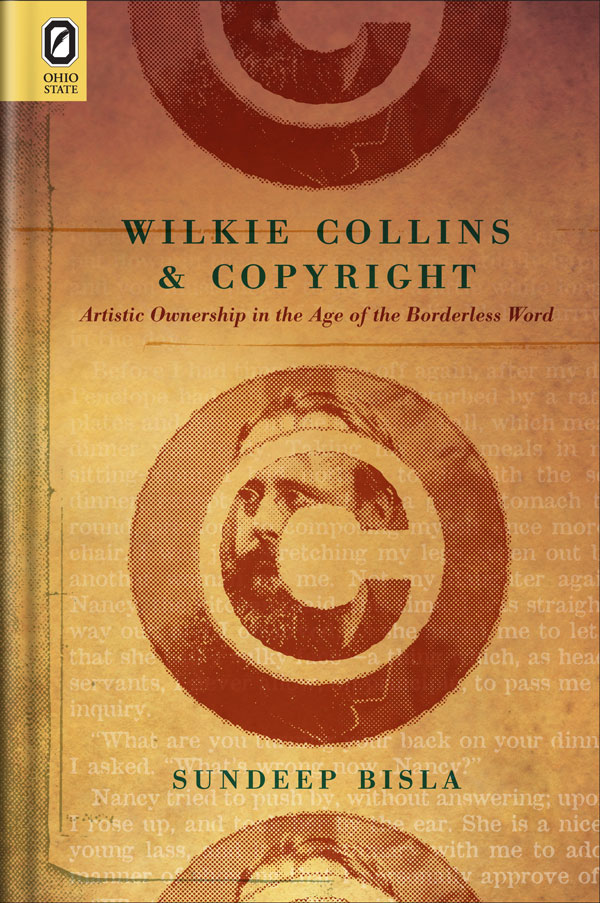Wilkie Collins and CopyrightArtistic Ownership in the Age of the Borderless WordSundeep Bisla |
 10/24/2013 Literary Criticism/ 309 pp. 6x9  $66.95 cloth 978-0-8142-1235-6 Add cloth to shopping cart $29.95 paper 978-0-8142-5426-4 Add paper to shopping cart $14.95 CD 978-0-8142-9337-9 Add CD to shopping cart Shopping Cart Instructions Review/Change Shopping Cart & Check-out | |||
|
Explore More Millar v. Taylor, London (1769) Balzac’s letter to authors, Paris (1834) Jefferys v. Boosey, London (1854) Feist Publications, Inc. v. Rural Telephone Service Co., 499 U.S. 340 (1991) |
“Wilkie Collins and Copyright is an elegant, intelligent, and impressive work. It is certain to be considered an important, perhaps even classic, Collins study. Sundeep Bisla is an impeccable researcher and beautiful writer. He provides a fresh interpretation of Collins as a novelist whose highly self-conscious efforts to manipulate language are set against the background of the particular material conditions for Victorian authorship, especially those governing copyright.” —Lauren M. E. Goodlad, author of The Victorian Geopolitical Aesthetic: Realism, Sovereignty and Transnational Experience. In the works and letters of his later years, Wilkie Collins continually expressed his displeasure over copyright violations. Wilkie Collins and Copyright: Artistic Ownership in the Age of the Borderless Word by Sundeep Bisla asks whether that discontent might not also have affected the composition of Collins’s major early works of the 1850s and 60s. Bisla’s investigation into this question, surprisingly, does not find an uncomplicated author uncomplicatedly launched on a defense of what he believes to be rightfully his. Instead, Bisla finds an author locked in fierce negotiation with the theoretical underpinnings of his medium, the written word, underpinnings best delineated by the twentieth-century deconstructionist Jacques Derrida. Collins’s discomfort with copyright violation comes to be in tension with his budding understanding of the paradoxical nature of the “iterability” of the word, a nature presenting itself as a conflict between the settling and breaking manifestations of linguistic repetition. In his efforts at resolving this paradox, Collins adopts a mechanism of recursive self-reflexivity through which each story reflects upon itself to a more fundamental extent than had its predecessor. This self-reflexive exploration has significant consequences for the author’s own iterability-menaced subjectivity, a striking example of which can be seen in the fact that the name being sought in Collins’s last masterpiece, The Moonstone, will end up being “MY OWN NAME”—in other words, “WILKIE COLLINS.”
| |||


 Sundeep Bisla
Sundeep Bisla